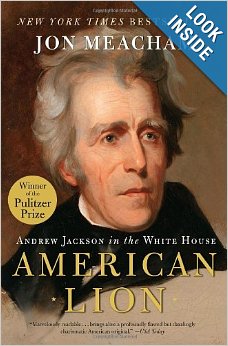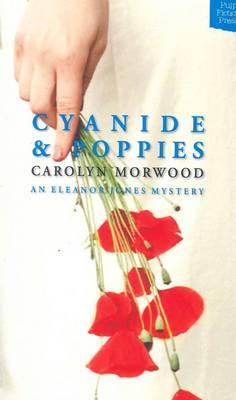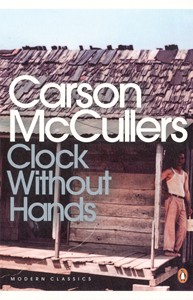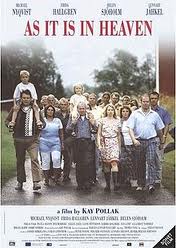Jackson was a man of oscillating moods. Sometimes personable, charming, considerate. Other times raging, violent, bullying. Sometimes humane and broad minded; other times contemptuous, racist regarding negroes and Indians, and provincially narrow. All of these in a single day on occasion.

He was at time proudly ignorant yet more well read than many of his friends and any of his enemies knew.
Orphaned when first his father died and then his two older brothers and mother died as result of British military action, during the Revolutionary War. He forever thereafter hated England and suspected it of any and all nefarious actions against the United States.
During his military career he took a paternalistic interest in his soldiers, refusing to leave a single one behind on march, even that meant every officer, himself first, had to walk, giving up their horses to pull wagons and litters. On the other hand he was a tyrant about obedience to the point of execution.
He hated indians beyond reason yet he adopted and raised in his own home an orphaned Indian boy found while his men were massacring a tribe. He wanted to clear indians from the south as they had been cleared from the north, freeing the land for plantations and cotton and thus more slaves. He was an advocate of slavery and completely indifferent to blacks, yet 500 free men of color (in the phrase of the day) were instrumental in his great victory in the Battle of New Orleans, along with about 100 Choctaw indians. But a racist is a racist.
He liked to surround himself with young men, as acolytes, but perhaps also substitutes for the younger brothers he did not have.
He identified himself nearly complete with the country as the family he never knew. Insults to it were insults to him. Insults to him were insults to it in his mind, or so it seemed to some observers.
The mediating institutions created by the constitution stifled the people and supported the privileged, he supposed. He won more votes but had fewer electoral votes than John Quincy Adams in the 1824 elections, throwing the decision to the House of Representatives which promptly (s)elected Adams. The mediating institutions included the Electoral College, the elections of senators by state legislatures, the appointed for life of Supreme Court judges, and the Bank of the United States, which separately and together limited government in the interest of the privileged, he thought, who peopled those mediating institutions. In the 1828 election Jackson won in a four-way race.
The Nullification Crises began in the 1820s and continued for a decade when John C. Calhoun, having resigned as Jackson’s Vice President, argued that South Carolina would choose which federal laws to obey and nullify others. He ever referred to secession. Jackson feared that the state(s) would destroy the union.
At the time Russia in the Pacific Northwest from Alaska to Washington along with the British from Oregon to Quebec in the north, and the Spanish and French in Mexico and the Caribbean surrounded the United States and in his eyes conspired against the continuation of the union. Predators all. Enemies with and without the gates.
The nullification crises was precipitated by an international agreement signed by the Federal Government that permitted seamen to have the freedom of the city while in port. That meant blacks on English, French, Dutch, Portuguese, Spanish, and other merchant ships could walk the streets of Charleston as free men.
South Carolina objected and then overruled this agreement by jailing any black sailors who set foot ashore while their ship was in port! That action breached an international treaty duly ratified by the Senate and signed by the president of the United States.
The South Carolina justification was that free blacks would by example produce unrest in slaves, might foment slave rebellion, assault white women because they have no civilised control, would be used by the English to destabilise and divide the States….. And the sky would also fall.
Jackson had a constant battle with the Bank of the United States to support local improvements, like roads and bridges. What we call today infrastructure loans to states, counties, towns, etc. The Bank had no interest in bridges over rivers in Tennessee or hard roads in Georgia.
The tariff added, it was claimed, 40% to the price of goods consumed in the south and produced in the north behind tariff walls. The tariff gets tied up with states’ rights, along with slavery, as part of the dominance of the union by northern interests. Ergo to a Calhoun, abolition is a smoke screen to dominate the south and keep the tariff, and the Bank.
Then there was the Petticoat War between his niece in-law Emily and the wife of cabinet secretary Talbot. Emily was determined to show Washington DC snobs that she, from the wild frontier of Tennessee, adheres to the highest standards of propriety and so will not receive Mrs. Talbot, who wed Talbot before her divorce from her previous husband was known to her to be concluded. Moreover, Mrs. Talbot came to the Talbot marriage with a dubious reputation. (But nothing worse than had been said about Rachel Jackson.) So Mrs. Talbot was three times over not to be received: bad reputation, divorcee, and bigamist.
Emily was the wife of Andrew Jackson Donelson, who was Jackson confidante and private secretary, and an ersatz son to him. Jackson likewise was a kindly patron to Emily until the Petticoat War became the talk of that small town on the Potomac.
The Little Magician, Martin van Buren, tried several times to broker a peace between the two ladies, but each time Emily either dithered, or agreed and then revoked her agreement.
Meanwhile, Calhoun and Henry Clay are vultures circling, preparing for their own runs for the White House in 1832. John Quincy Adams, who Jackson roundly defeated in 1828 is sulking and very ready to plot Jackson’s downfall. He might help Clay but probably not Calhoun, since Adams is pure New Englander.
While Jackson was ready to send the Federal army to the Blackhawk War in Illinois it was over before Winfield Scott could get there. He started the First Seminole War to move indians out of Georgia and Alabama first into the swamps of Florida and then across the Mississippi. That is why there is a Miami in Ohio.
Jackson rejected Henry Clay’s proposal for national day of prayer during a widespread cholera epidemic to keep the separation of church and state.
When the Nullifiers got agitated Jackson had the entire Federal army garrison in Charleston replaced by true blue union men, and he managed to do this on the quiet.
He campaigned hard for re-election in 1832. That is, he went on the campaign trail, speaking, shaking hands, etc. The first time a candidate had taken his campaign directly to voters. Martin Van Buren was the de facto campaign manager as the Vice-Presidential nominee. Jackson triumphed comprehensively in 1832 over Henry Clay: 54% to 36%. There were two other candidates who made up the rest.
The Compromise of 1832 in part negotiated by the Great Compromiser, Henry Clay, combined the Tariff reduction act with the Force Bill. The tariff was lowered to placate Southern planters and the Force Bill, though redundant, explicitly empowered the president to collect the tariff by force, if necessary. Martin van Buren did much of the politicking in Congress to count the votes.
When all else failed Jackson withdrew Federal government deposits from Bank of the United States and shifted them to banks in states. By distributing the monies he won over allies, by withdrawing the funds, he killed the Bank of the United States and with it, Nicholas Biddle’s own presidential ambitions. He later vetoed the renewal of the charter. The Bank funded Henry Clay’s presidential campaign very handsomely, using tax deposits, but Clay still lost.
Jackson’s second inaugural address emphasized the Union that won our liberty from England, the Union that secured our freedom, the Union dealt with the Indians. The Union that made us prosperous through industry and trade. Union secured our lands. Union….. These goods were achieved by Union, not by this state or that. Now picture the results of disunion. Each state will guard its borders. Each state will impose its own tariffs and taxes. Each state ill built only internal roads. And so on. A pretty well made argument for a man with little credit as a thinker.
There was a point-blank assassination attempt by a nutter. Jackson was convinced it was a conspiracy of his enemies working through this reprobate.
When William Lloyd Garrison sent thousands of copies of an abolitionist tract through the United States mail to Charleston, Jackson sat idly by when South Carolina firebrands burned the warehouse they were in. He did nothing to protect the U.S. Mail and in fact asked about legislation to stop sending such material through the mail.
Jackson viewed Van Buren as his successor and the vote for Van Buren as a vote for him, Jackson, so Jackson worked hard for Van Buren in 1836.
I listened to this book on Audible in an abridgement during 20-minute episodes dog-walking or pedaling at the gym. That makes it harder for me to assess the research basis of the book. But I can say that it is not one-eyed. More than once Jackson’s mistakes and faults are noted. And at the end the author notes how great evil can be the commonly accepted practice of the day, namely slavery.
Month: September 2013
Phryne Fisher’s alter ego
Another Eleanor Jones krimie set in 1923 Melbourne during a police strike: Carolyn Morwood, Cyanide and Poppies (2012).

Eleanor is now a reviewer for ‘The Argus.’ Nicholas is still there; his wife is not. Andrew has returned from, of all places, Dimboola, but is as fragile as cracked crystal and less stable.
Slow and thoughtful. Eleanor is introspective but it never feels like superfluous padding as it so often does in many of the Chick-Krimies that I sample and reject. Morwood brings Melbourne of the age alive with gravity in contrast, say to Miss Fisher with her bold and brassy and superficial appurtenances like cars, clothes, etc. If Miss Fisher, god love her, is nearly a cartoon, Eleanor is nearly a tragic heroine the 19th Century. They are both treasures.
Eleanor is a very serious person who served as a nurse during World War I in Palestine and France. She has seen much death and more suffering and been unable to do anything much about either. Her fiancée and her older brother were both killed in France, and the younger brother Andrew, who also served in France, returned psyched out. Not much fun there.
Her childhood sweetheart Nicholas is married but his wife seems to be permanently away, perhaps never to return. No one knows, perhaps not even Nicholas. He helped Eleanor get the job at the newspapers and they spend time together wondering no doubt how what might have been or what might be….
Meanwhile the hoons feel licensed by absence of police, most of whom are on strike. Vigilantes organise in turn. Libertarian hoon versus self-righteous thug is the result.
Within this context it is an engrossing study of relationships distorted by the gravity of a murder. The victim is a nosy, unpleasant journalist, who was perhaps given to blackmail. Andrew’s girlfriend, not quite girlfriend but might be, is the suspect. It is Sister Jones to the rescue.
There is much about Eleanor managing Andrew, trying to do it without his awareness. Their rapprochement and cooperation is well done. Inspector Pearce is well meaning and competent but under much pressure because of the Police Strike. The tension between Eleanor and Nicholas Bird is unrelenting. His daughter Kate is instrumental in the denouement, at first reluctantly but then willingly. ‘Reluctantly’ because Kate sees Eleanor as a threat to her absent mother or Kate’s own monopoly of Nicholas. But Kate, too, wants to help the innocent Nadine, Andrew’s deuce girlfriend, so she joins the plot.
There is to’ing and fro’ing in Melbourne and out, namely a train ride to and from Dimboola.
Nice touches, how the same facts can be construed in different ways. I also liked the ambiguity of Nadine’s (the maybe girlfriend) claim to be a medium, though it was dropped completely after being such a big part of the buildup. Some kind of recognition, if not resolution, is needed on that, not just omission. Likewise the unresolved tension with the maid is magnified, and then not mentioned again.
Rachel, Nicholas’s absent wife, writes to ask for a divorce! I foresee much consternation ahead. Divorce might ruin him socially in Melbourne. Kate would react how? Would he then be free for Eleanor or would he be too injured and want to avoid contaminating her?
It was not hard to figure out the villain before Eleanor. The most sanctimonious ones are always at it in krimies, as often in life.
Chinese Takeaway 2011
An understated tale of redemption in face of the absurdity of life. Wry humour, pathos, and friendship across barriers are the motifs. Now that Roger Ebert is no longer there, I try to view movies as he would. He would like this I am sure.

Ricardo Darín is, as always, impeccable as the wary and weary Ricardo. He is subdued, defeated, grumpy, sullen, grey, grizzled, ragged, prissy…. He counts the nails in a box, in every box, delivered to his hardware store. The count is short, as frequently it is. On the telephone he complains in a tirade that seems an often repeated performance well out of proportion to the offense. When the supplier tries to make amends with some free extras in the next delivery, these he refuses and sets about counting the nails in this delivery. Take that! What is at stake is not the nails but the principle! But what principle?
When not counting nails, at the end of the day Roberto compiles newspaper cuttings into albums that demonstrate the absurdity of life. He subscribes to a lot of newspapers to find these stories. Some of the stories are hilarious, as long as it is not you. In each case Roberto pictures himself in the victim’s role. Get it? In time even the absurd opening scene is explained. (During the credits this explanation is vindicated, so keep watching.)
Maria throws herself at him but he cannot let anyone touch his emotions because, as the evidence in the albums shows, it will turn out badly, everything turns out badly, even having a shave in a barber’s chair. Then the Chinese, Jun, pops up and somehow gets inside the shell, and stays. In time Roberto learns he is not alone in his misery. In time he learns that life goes on and there is no escaping from it. He learns this from Jun’s persistence in the face of even greater adversity.
If you have no emotions then no one can hurt you, this seems to be Roberto’s approach to life. But Jun has even less than he has, so Roberto helps him, reluctantly, then for a moment the tables are turned and Jun comes to his rescue. Now Roberto has to stay the course. And there is Chinese take-away.
Some of the comic scenes are overdone like the one at the Chinese Consulate but who cares. The film oscillates from realism to parody but it does not go to either extreme.
With any and everything from Argentina I look for the Dirty War. This one refers to the Falklands War. And once again here the police are malevolent, a staple of Argentine films, and perhaps a reminder of the Dirty War. Also the newspaper that has the picture that starts the album is Italian, not Argentine because, I assume, of censorship in Argentina.
Civic Video in Newtown has one copy.
Clock without Hands by Carson McCullers
Recommended for adults.
Another profound examination of life by this blighted soul, Carson McCullers. It opens with Malone, a small town pharmacist, being told he has leukaemia and a year to live. During the novel he reflects on his life, ponders his own death, while meeting his friends and customers. He also discovers somethings about himself, some good and some not.

The novel becomes a sustained critique of racism, though the word ‘critique’ is not right. ‘Satire’ might be a better word were the subject not so immediate and serious. In these pages two blacks are killed, each murder involves a law officer, but nothing is done to apprehend the perpetrators. Indeed one is killed by a police officer on the street in daylight.
It is not all grim. The Judge’s breakfast is told as an act of loving tenderness. That man loves to eat and is digging his own grave with his teeth, as he says. He has a cracked-brain plan to revive his political career by proposing that the hated Federal Government (Dwight Eisenhower was president at the time) convert Confederate dollars into coin of the realm. His grandson Jester, whom the widowed Judge loves beyond word, rejects this along with the Judge’s ingrained white supremacist attitude and by chance seeks out the company of a black man who is unreliable and suspicious, and yet there is some rapport between them that each recognizes and neither understands.
The Judge’s wife died years ago, and his son committed suicide quite a time ago, too, and that hangs over the Judge and all who mix with him.
Malone goes through the five stages of grief for himself, denial and isolation, anger, bargaining, depression, and acceptance. But Malone does not figure in the middle of the story.
There the principals are Judge Fox Clane, his dead son John Clane whom we meet in retrospect, his grandson Jester, and the black Sherman Pew. John Clane, though married came to love another woman who in turn had a sexual liaison with a black man which produced Sherman. John Clane defended this black lover when accused of the murder of the estranged husband of this other woman, and John Clane lost and so did his client. Then the woman rejected him and so he took his own life, twice over a failure. This is revealed piece-by-piece in the middle of the novel. The Judge knows all and indeed he presided at the trial where his son defended the hopeless cause. That may seem strange to law students, but reality is a lot more confused than textbooks.
Judge Fox Clane is portrayed as a nearly perfect fool. When Jester, Sherman, or others ridicule him, he genuinely thinks it is praise, etc. He even confides his plan to cash in Confederate dollars and almost proposes a return to slavery to the black Sherman Pew and then is puzzled when he – Sherman – gets mad. The Judge is not clever like a fox, despite his name. This staunch defender of white supremacy is incoherent and babbling most of the time with zero self-knowledge. Perhaps his most pitiful hour is when he goes on radio to denounce the Supreme Court ruling in Brown vs the Board of Education of Topeka Kansas and can only recite Lincoln’s Gettysburg address because it the only thing he can call to mind, apart from swearing, such are his limited power of thought and concentration. So he quotes Lincoln to the consternation of the radio station personnel.
There are many earlier pitiful moments for the Judge but he usually does not himself notice. That is the satire, I guess, of the bigoted southern official, pompous, stupid, and incompetent, but nonetheless a leader. (Brown was in 1954. I have been to that school which is now a museum.)
When Sherman finds out his origins, he rebels and in the end is murdered by a white racist thug encouraged by the Judge in his foggy way. Malone first drew the lot to murder Sherman but he refused and so discovered something in himself. His story bookends the novel. It starts with his diagnosis and ends with his death. Sherman has been portrayed throughout as lost between two worlds, neither black nor white, and though neither of them knew the background, Sherman and Jester become friends in a bickering kind of way. Malone is also between two worlds: the living and the dead.
Part of Malone’s reaction to his diagnosis is to take better care of himself in diet, getting dental work, and so on.
The end came to Malone: ‘A strange lightness came upon his soul and he exalted. He looked at nature now and it was part of himself. He was no longer a man watching a clock without hands.’ It would seem that the Judge did not last much longer at age 85. That would leave Jester as the next generation to right all these wrongs.
As it is in Heaven (2004)
Recommended for adults.
A stranger enters a small, close-knit, inward-looking, isolated community. As the locals react to him the papers over the cracks give way and old animosities flare, pent up desires surface, suppressed hopes roil, unspoken truces are broken, irritations long ignored are scratched. The ructions spring from ambition, from dominance, from emotions, from lust, from insecurity, it matters not the origin once they are loosened.

It is a common trope in westerns. Examples include ‘Shane,’ ‘Red Harvest,’ ‘The Quiet Man,’ ‘Bad Day at Black Rock,’ ‘Bus Riley is Back,’ ‘The Wild One’, ‘Suddenly Last Summer,’ and many more, including ‘As It is in Heaven’ (2004), this delightful film from Sweden. There is much singing and dancing, but also wife-beating, shotguns, fistfights, car smashing, and a lot more.
The world renown musician Daniel has a heart attack and leaves the international music grind, buying an abandoned schoolhouse in his home town, which he left at age seven. He has long since adopted a stage name as his own, so to the locals he is a stranger, a famous stranger to be sure.
Little by little he is drawn into the local church choir where he returns to the fundamentals of music like breathing, projecting, relaxation, and so on. The choir is the reactor that leaks emotional radiation. Those who hold apart from the choir suspect demonic doings there, and a mole confirms that. Among those who participate there are old rivalries, conflicts, and trouble at home from spending so much time practicing.
Daniel has no wish to become involved in any of this but it is inescapable in such a small community. The characters are well rounded though the two villains are the least developed, the jealous and envious parson and the wife-beating truck driver. The changing Nordic seasons contribute to the story. Along the way love is explained.
Despite frictions and cross purposes the choir hangs together, shielding the wife from the thuggo, accepting the retarded Toré, matching up an elderly couple, and recruiting more young people. These successes infuriate the parson…. It is Gabriella whose courage inspires the others to persevere when the centripetal forces threaten.
It has a marvellous end that draws together the larger theme explaining why a great musician found it so satisfying to work with this village choir from the remote north of Sweden. Bicycle riding is a metaphor for facing fear for Daniel and despite his worldly successes he, too, has fears.
I could not find a review by the Dean, Roger Ebert. If he missed it that is too bad because he would have liked it.
